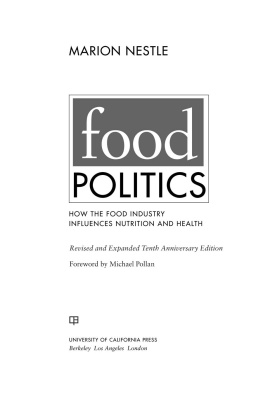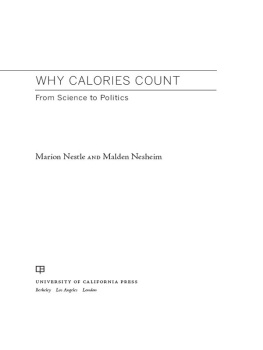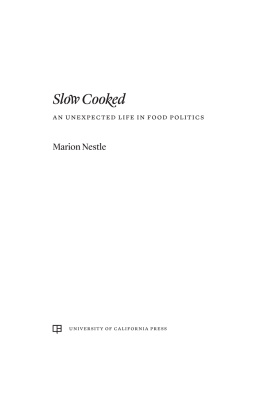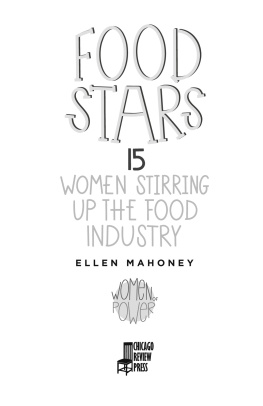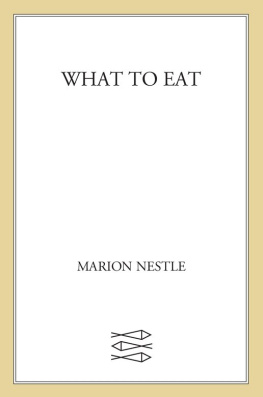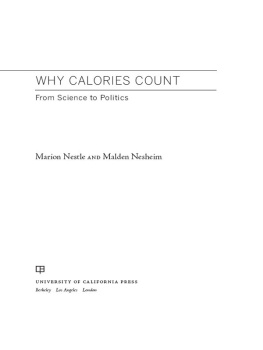
PRAISE FOR MARION NESTLES FOOD POLITICS
Hard-hitting, revealing.... Challenges us to consider the political environment in which the science of food and nutrition exists.
New England Journal of Medicine
Examines... the industrys manipulation of Americas eating habits while enumerating many conflicts of interest among nutritional authorities.... A telling book.... Its hard to argue with Dr. Nestles point that food is above all political.
The New York Times
Fascinating... we learn how powerful, intrusive, influential, and invasive big industry is and how alert we must constantly be to prevent it from influencing not only our own personal nutritional choices, but those of our government agencies.
Julia Child
Nestle demonstrates how lobbying, public relations, political maneuvering, and advertising by the food industry work against public health goals and have helped create a population thats eating itself sick. Most important, she makes clear the need for better nutritional education among consumers.
Los Angeles Times
Food Politics is a book that deserves to change national and international attitudes, as Carsons Silent Spring did in the 1960s.
American Journal of Clinical Nutrition
A provocative and highly readable book arguing that Americas agribusiness lobby has stifled the governments regulatory power, helped create a seasonless and regionless diet, and hampered the governments ability to offer sound, scientific nutritional advice.
Economist
In her widely acclaimed book, Nestle explains why the wealthiest nation in the world is eating itself to death. Based on meticulous research, Nestles book exposes how the naked self-interest of the American corporate food industry compromises nutrition policy, as well as our governments regulation of food safety.
San Francisco Chronicle
If it hasnt yet occurred to you that there are striking and ominous parallels between the tobacco and food industriesBig Tobacco, meet Big Fatit might be time to pick up a copy of Food Politics .
San Francisco Bay Guardian
Nestles well-documented study of the ways in which big business influences not only our own food choices but also government nutrition policies will terrify you.
Natural Health

CALIFORNIA STUDIES IN FOOD AND CULTURE
Darra Goldstein, Editor
MARION NESTLE
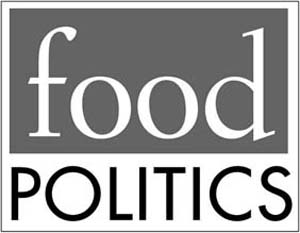
HOW THE FOOD INDUSTRY
INFLUENCES NUTRITION AND HEALTH
Revised and Expanded Tenth Anniversary Edition
Foreword by Michael Pollan

UNIVERSITY OF CALIFORNIA PRESS
Berkeley Los Angeles London
University of California Press, one of the most distinguished university presses in the United States, enriches lives around the world by advancing scholarship in the humanities, social sciences, and natural sciences. Its activities are supported by the UC Press Foundation and by philanthropic contributions from individuals and institutions. For more information, visit www.ucpress.edu.
University of California Press
Berkeley and Los Angeles, California
University of California Press, Ltd.
London, England
2002, 2007, 2013 by The Regents of the University of California
First paperback printing 2003
ISBN 978-0-520-27596-6 (pbk.: alk. paper)
eISBN 9780520955066
The Library of Congress has cataloged an earlier edition of this book as follows:
Library of Congress Cataloging-in-Publication Data
Nestle, Marion.
Food politics: how the food industry influences nutrition and health / Marion Nestle.
p. cm. (California studies in food and culture; 3)
Includes bibliographical references and index.
ISBN 0-520-22465-5 (cloth: alk. paper)
1. Nutrition policyUnited States. 2. FoodMarketingMoral and ethical aspectsUnited States. 3. Food industry and tradeUnited States. I. Title. II. Series.
TX360.U6.N47 F47 2002
363.850973dc212001027678
Manufactured in the United States of America
22 21 20 19 18 17 16 15 14 13
10 9 8 7 6 5 4 3 2 1
In keeping with a commitment to support environmentally responsible and sustainable printing practices, UC Press has printed this book on Rolland Enviro100, a 100% post-consumer fiber paper that is FSC certified, deinked, processed chlorine-free, and manufactured with renewable biogas energy. It is acid-free and EcoLogo certified.
CONTENTS
|
|
|
|
|
|
Conclusion:
The Politics of Food Choice |
|
Afterword:
Food Politics: Ten Years Later and Beyond |
|
Appendix:
Issues in Nutrition and Nutrition Research |
|
FOREWORD
ON EVEN THE SHORTEST SHELF of books dedicated to explaining the American food system, Marion Nestles Food Politics deserves a place of prominence. Whenever I teach a course on writing about food, I include the book on the syllabus. On my own shelf, its white and fire-engine-red spine stands next to Eric Schlossers Fast Food Nation, Wendell Berrys Unsettling of America, Harvey Levensteins Paradox of Plenty, and Rachel Carsons Silent Spring. Pretty good company for a book that, on its publication in 2002, wasnt even reviewed by the New York Times an error in judgment the paper has been trying to rectify ever since, chiefly by turning to Marion Nestle for a salty quote anytime the food industry finds itself ensnared in controversy. That seems to be happening on more or less a daily basis, and Marion Nestle is herself one of the primary reasons why: The book you hold is one of the founding documents of the movement to reform the American food system.
I first read Food Politics while researching The Omnivores Dilemma . The book helped me connect the dots between what I was observing in the farm fields (vast monocultures of corn and soy, spreading like a great lawn across the American Middle West) and what I was finding in the supermarket (endless aisles of processed foods, most of them sporting improbable health claims). In sentences that were almost breathtaking in their bluntness, Nestle methodically laid out the business model of the entire U.S. food industry. How? By proceeding like any good investigative journalist: following the money, rather than listening to the industrys self-justifying rhetoric.
Here, in a nutshell, is Nestles account of how the whole game works: Since the 1970s, American farmers have been producing an overabundance of caloriesone of the great unspoken secrets... [and] a major problem for the food industry (p. 13). The industrys dilemma is that the average American can eat only so much of that foodabout 1,500 pounds per yearand the total number of eaters in this country is growing by only one or two percentage points per year. Yet Wall Street demands that food corporations grow at a considerably faster rate. What to do? Add value to cheap raw ingredients by processing them (i.e., transform a few pennies worth of grain and sugar into five dollars worth of breakfast cereal); spend billions to market these products as aggressively as possible (to children, by using sugar and cartoon characters, and to their parents, by making dubious health claims); use every trick of food science and packaging to induce us to eat more of these products than we should; and then, just to make sure no one tries to interfere with this profitable racket, heavily lobby Congress and nutrition scientists to keep anyone in power from so much as thinking about regulation or officially whispering that maybe we should eat a little less of this stuff.
Next page
